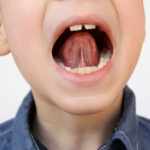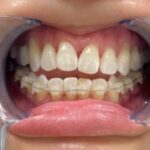

Common Breastfeeding / Bottle feeding Difficulties
- Difficulty latching
- Clicking sound during feeding
- Always seems hungry, feeds frequently, seems to guzzle milk/formula
- Fussiness during or after feeding
- ex: crying, arching their body, pulling off the nipple, etc.
- Symptoms of Colic or Reflux
- ex: having to be held a lot, or held more upright after feeding)
- Excessive spit-up or vomiting
- Milk / Formula leaks out of the mouth excessively
- Difficulty switching from breast to bottle
- You may have had to try several different bottles and/or nipples before finding one that your child will “take”.



Common Feeding Difficulties
- Difficulty transitioning from breast/bottle to purees
- not handling purees well – ex: spills out of the mouth, doesn’t get much volume in
- only wants to nurse or drink bottle, and not showing interest in purees after many tries
- Difficulty weaning from the breast/bottle to a straw or cup
- You may have had to try many different types of cups until you found one they will “take”; or they will only accept one type/brand of cup
- Difficulty managing foods in the mouth
- spits out pieces, especially when there are lumps/small pieces mixed into foods
- prefers to eat only soft foods, and avoids foods that require more chewing
- sucks on foods, or mashes the food to the roof of the mouth, or pockets food in cheeks
- seems to swallow foods before fully chewed up
- stuffing a lot of food in the mouth at once
- Speed of eating is too fast or too slow
- Guzzling down liquids very fast
- Gagging, Choking, Vomiting during a meal (many possible causes)
- Limited amount of food consumed at each meal
- may eat less at meals and eats more snack foods
- may drink more liquids than eating foods
- You or the Doctor may have concerns with their nutrition, growth, and/or weight
- you may have added the use of “toddler formulas” or supplements (ex: Pediasure) because you’re concerned about nutrition.
- Feeding Difficulty can also impact older kids, teens, & adults
- Orofacial Myofunctional Disorders are those that affect children over 4 years of age, as well as teens and adults. Feeding difficulty is one of many possible symptoms of an orofacial myofunctional disorder. It is important to note that for these older age groups, it is evaluated and addressed differently in therapy, than those of infants, toddlers, and preschoolers.


Common “Picky Eating” Difficulties – For children & adults
- Limited variety of foods eaten
- Limited diet – eating only from one or two food groups (ex: only eats carbs)/ eliminating food groups (ex: no proteins)
- Eating the same few foods every day
- Cycles of loving a food and eating it all the time, and then switches to hating it and never eating it again.
- Only eating a specific brand & flavor of food (ex: only Dannon’s brand of vanilla yogurt, or only chicken nuggets from a specific restaurant, etc.); and refusing other brands/flavors (we all have preferences, but this is more extreme)
- Food refusal
- Refuse specific textures (ex: only eating crunchy foods & refusing “mushy” foods)
- Refusing specific tastes (ex: only eating bland foods & refusing seasoned or “spicy” foods)
- Refuse any new foods; or refuse a familiar food that has been prepared differently
- Mealtime Stress:
- Children: Tantrums at mealtimes
- Parent: Worry about nutrition; Offering multiple food options so they’ll pick one; Begging or Bribing a child to eat
- Teens & Adults: May avoid eating in social situations
- Gagging and/or Vomiting at mealtimes (many possible causes)
- may occur at the sight of new or disliked foods
- You or the Doctor may have concerns about nutrition, growth, or weight
- For Parents: If your child had low weight/poor growth, you may have added the use of “toddler formulas” or supplements (ex: Pediasure) because you’re concerned about their nutrition and/or weight gain.
- For adults: You may be using supplements (ex: protein powders, shakes, or pills) to boost your nutritional intake.
- Picky Eating can impact anyone & at any age
- Picky eating typically begins as a feeding difficulty early on in infancy or childhood and changes over time
- Issues may be subtle at first, and become more apparent as the child gets older
-
Adults have learned to compensate, but the underlying issues are still there


Common Speech Difficulties
- “Late Talker” and delayed speech skills
- Difficulty producing sounds
- Substituting one sound for another
- Dropping sounds from the middle or end of words
- Struggles with specific sounds even after previous speech therapy
- Unclear Speech
- Mumbling
- Single words are clearer than phrases or sentences
- Apraxia = difficulty coordinating the complex oral movements needed to create sounds, combine them into syllables, then into words, and then words into phrases.
- Speech Difficulties can impact anyone at any age – children, teens, and adults
- Difficulty with certain sounds, or pronunciation of words
- Difficulty communicating with peers, affecting social interactions
- Worry about other’s perception of their speech
- Strain or Tension felt in the face, neck, back, or shoulders when speaking, presenting, or singing.


Common Tongue-Tie Difficulties – For Children, Teens & Adults
- Speech Difficulties – Difficulty producing sounds, or speech is unclear. For example:
- Sounds may be distorted or imprecise
- Struggles with specific sounds even after receiving years of speech therapy
- Eating Difficulties: Difficulty with drinking, chewing, or swallowing. For example:
- For infants & children:
- Difficulty with breast/bottle feeding
- Difficulty transitioning to purees or solids
- Gagging or Coughing on liquids or solids
- Picky eating
- For older children, teens & adults:
- Difficulty managing food in the mouth, chewing, or swallowing
- Difficulty with certain food tastes or textures
- Gagging or Coughing on liquids or solids
- Picky eating
- For infants & children:
- Airway, Oral & Dental Issues – For Children & Adults:
- Extended pacifier use (past 6 months); And/Or Thumb/finger-sucking habits
- Excessive drooling / Saliva production
- Mouth breathing
- Frequent / Chronic congestion and respiratory illnesses
- Crowded/crooked teeth, Dental malocclusions(ex: overbite, open bite, etc.), often requiring orthodontic work
- Tongue-thrusting
- Jaw issues (size & shape), TMJ issues, Teeth grinding/clenching, Jaw pain, etc.
- Snoring, Sleep-Disordered Breathing & Sleep Apnea
- Whole Body Effects – For Children and Adults:
- May have/had Torticollis as an infant
- May experience neck, shoulder, or back tension, and body misalignment.
- May have issues with posture (ex: Scoliosis, Slouching, Rotated shoulders, Head tilt, etc.)
- May experience Strain or Tension (felt in the face, neck, back, or shoulders) when speaking, presenting, or singing.
- Orofacial Myofunctional Disorders are those that affect children over 4 years of age, as well as teens and adults. They include many of the issues mentioned above, as well as others. It is important to note that for these older age groups, evaluations for orofacial myofunctional disorders and the therapy, are different from the evaluations and therapy for infants, toddlers, and preschoolers.
